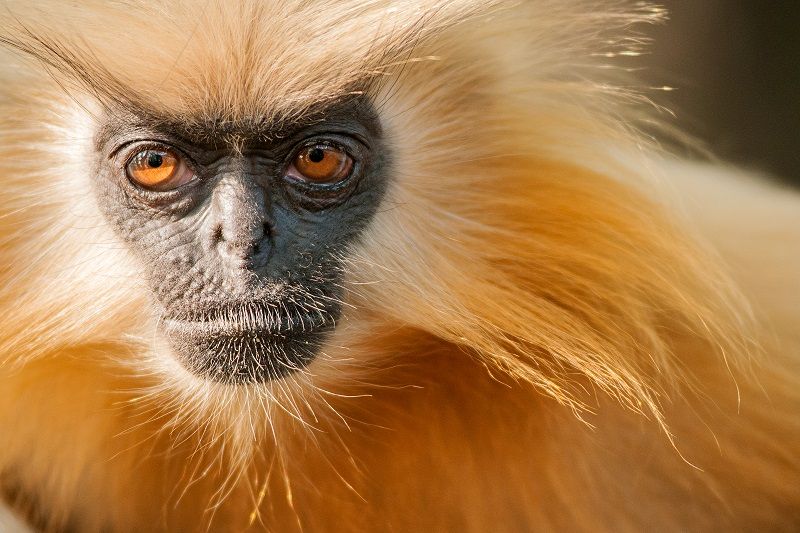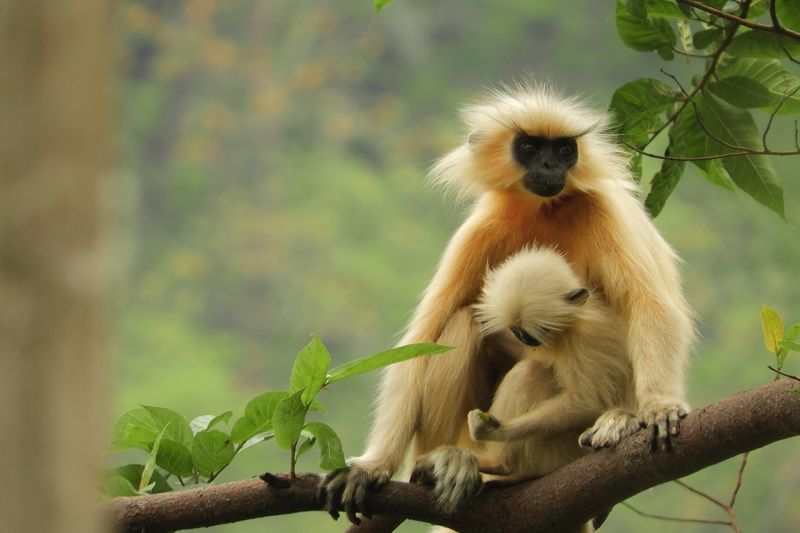Golden langurs in India

Establishing artificial canopy bridges as road overpasses and linking fragmented populations through village corridors in Assam, India
One of the 25 most endangered primates in the world
Endangered golden langur monkeys are found in the Assam region in North Eastern India and Bhutan and considered sacred by Himalayan people. They live in the treetops, using their long tails to balance as they jump between branches. They live in groups of up to 22 individuals and eat an herbivorous diet of berries, nuts and seeds.
Sadly, habitat loss is severely threatening golden langurs. Assam has lost almost half of its forest in the last few decades. The remaining populations of golden langurs now exist in isolated pockets of forest, and must travel across farmland, villages and roads to find food and mates. This causes more threats to the monkeys, including collisions with vehicles, attacks by dogs and electrocution. It has also forced golden langurs to change their diets and the distances they would usually travel, increased their stress and increased occurrences of parasites.

Bridging the gap to recovery
This project, run by Jihosuo Biswas and his team, is working to join up golden langurs’ fragmented forest habitat across the villages, by constructing rope bridges. They’re building 10 rope bridges across roads and villages, and using camera traps to monitor how effective the bridges are at helping the monkeys travel in the treetops instead of having to venture down to the ground. The project is also planting saplings which will form new pockets and corridors of forests across the villages, joining up forest fragments, helping to increase the monkeys’ habitat and providing new routes for them to move through the landscape.
Involving the local community is really important. The project team is running education sessions, showing wildlife documentaries and using role play, drama and debates to engage the local community. Volunteers will be recruited to monitor the monkeys’ movements and use of the bridges, as well as helping to plant and nurture the saplings. If the community understands the importance of protecting golden langurs, the project, and these endangered primates, will both thrive.
We want to give golden langurs a brighter future; with your help we can make a difference.
Header image Samsul Huda Patgiri | Shutterstock.com
